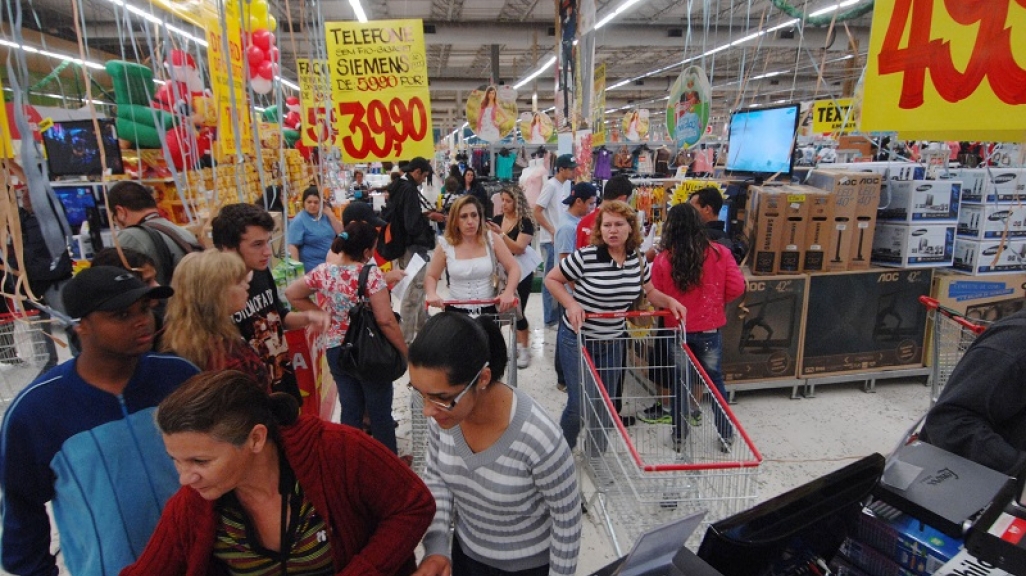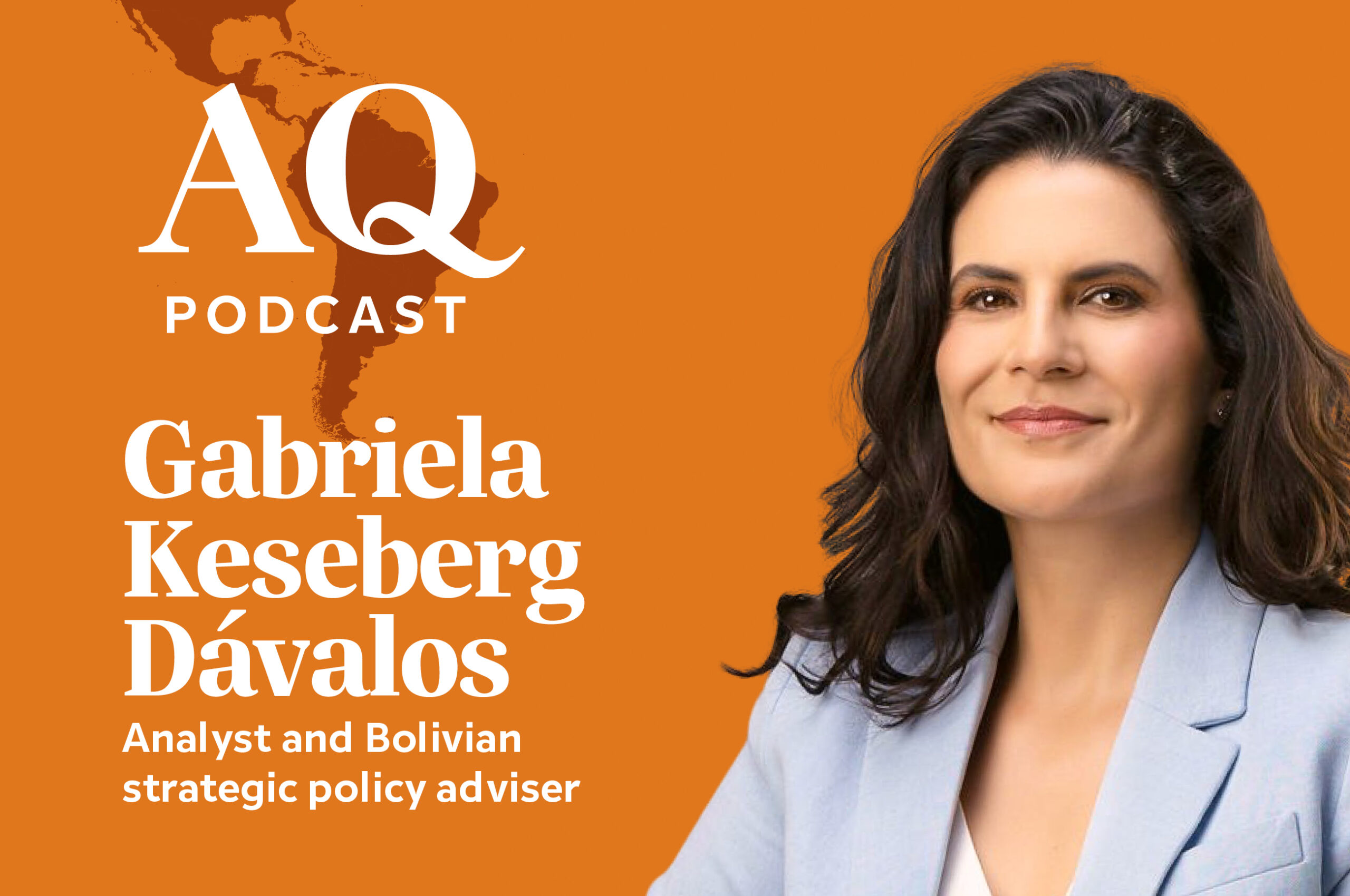The Political Implications of Latin America's Slowing Growth
The Political Implications of Latin America's Slowing Growth
As growth slows, the region will face challenges in meeting expectations to improve quality of life, writes COA’s Eric Farnsworth for The Huffington Post.
For much of the past decade, Latin America--particularly the commodities exporting nations of South America--has been on an economic winning streak. Buoyed by strong growth in China and other emerging markets, demand for commodities worldwide grew exponentially, tightening markets and keeping prices high. Countries that produce and sell primary goods benefitted handsomely, realizing significant capital inflows that allowed governments to distribute new wealth. This directly contributed to a dramatic reduction in poverty in some countries like Brazil and the building of a new and vibrant middle class.
Copper, iron ore, hydrocarbons, beef, chicken, and soy: these and other products have literally helped build and feed the world's fastest growing economies. As the United States and the developed world fell into deep recession in 2008 and 2009, some Latin American leaders including the late Hugo Chavez of Venezuela, Brazil's former President Luiz Inacio Lula da Silva, and Argentina's Cristina Fernandez de Kirchner used global forums including the United Nations General Assembly in New York to highlight differences in economic performance, suggesting that the Western model of capitalism was exhausted and was no longer attractive for many in the Western Hemisphere.
As China slows, however, and the commodities super cycle winds down, those Latin American nations that count China as a top trade partner, including Brazil, Chile, Peru, and Argentina (second after Brazil), are seeing their economies slow. Coupled with a true revolution in energy that has opened up vast new opportunities for exploration and production in North America and elsewhere, energy exporting nations including Ecuador, Trinidad and Tobago, and Venezuela are faced with new competition for critically-important investment dollars even while they face price reductions for energy exports in the near term given global energy abundance.
In the global economy, the United States is now a bright spot, an engine of growth. Europe and Japan continue to struggle, while China--still growing at seven percent or so--faces its own economic challenges in the shadow banking and housing sectors. It also remains to be seen how democracy protests in Hong Kong may impact continued inflows of foreign investment. This means that those nations of the Americas most tied economically to the United States, including Canada and Mexico but also other free trade partners including Colombia and others, stand to benefit even while others face potential stagnation. On September 29, in fact, Brazil's Central Bank again downgraded its projection for annual growth, this time to less than one percent, even as inflation ticks higher and interest rates remain above 10 percent. By some estimates, Venezuela suffers from the highest inflation rate in the world, with all the economic dislocations including eroding purchasing power for the middle and lower classes that that implies.
Economic reforms would improve prospects for growth, such as Mexico has undertaken in dramatic fashion in two years under President Enrique Pena Nieto. To this point, growth remains sluggish but the reforms have not yet been fully implemented; when they are, observers predict that GDP will strengthen considerably. Other countries, too, have implemented reforms, seeking to ensure that the inevitable softening of commodities markets could be managed successfully. Chile, for example, established a sovereign wealth fund capitalized by a percentage of the proceeds of commodities sales, primarily copper, while also establishing new and innovative programs including Start Up Chile to draw new investment and entrepreneurial talent. Similar programs have been established in Brazil and Colombia, and are providing a cushion to limit somewhat the downside of weakening commodities markets.
Nonetheless, as countries across Latin America slow, with some even falling into recession, the political implications cannot be ignored. The new middle class has growing expectations for improved living conditions, including more effective schooling, improved healthcare, better transportation options, and safer streets. These issues largely undergirded the public protests that rocked South America in 2013, from Argentina to Brazil to Chile to Colombia to Peru, and lit the fire for the street battles that erupted in Venezuela beginning on February 12 of this year.
At the same time, Brazil's slowing economy has directly contributed to the tightening of the presidential elections, with the first round set for Sunday, October 5, and the re-election of incumbent Dilma Rousseff is no longer guaranteed. If she is re-elected, she has already promised to make economic changes beginning with the reconstitution of her economic team. While unemployment remains low, a slowing economy implies stagnant purchasing power for consumers. It also raises the possibility that the rapid movement of millions of citizens from poverty to the middle class could slow, or in some cases reverse. Economic anxiety is a powerful driver of political action and a desire for change. The challenge for whoever is elected the next president of Brazil, be it Rousseff, Marina Silva, or Aecio Neves, will be to restore confidence and kick-start growth. That has direct implications for the rest of the region, too, as Brazil continues to represent almost half of Latin America's total economic size.
The challenge for regional democracies will be to meet the rising economic and political expectations of their people within a framework of slowing economies, reduced growth, and growing global competition. The political implications are potentially large.









